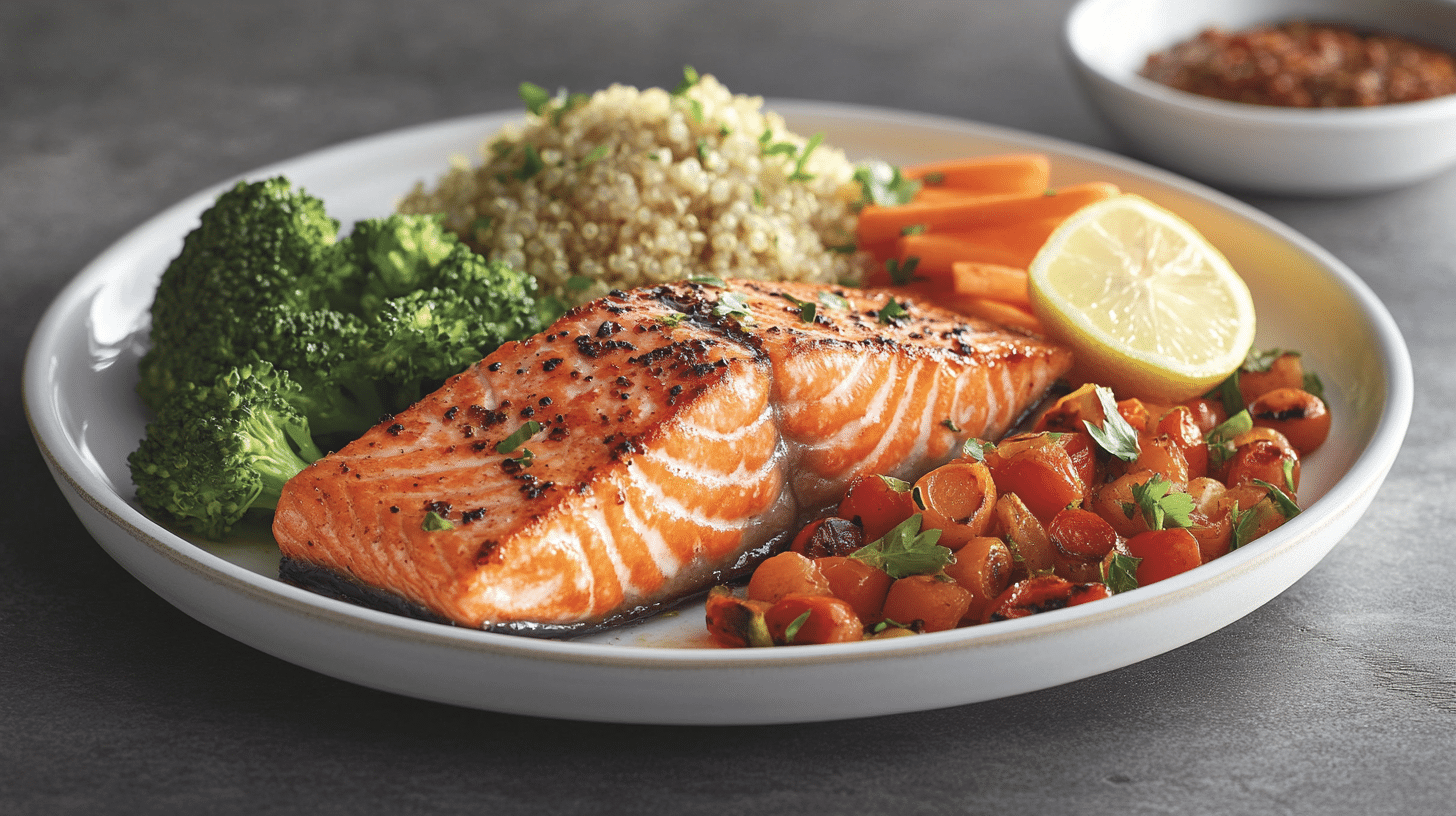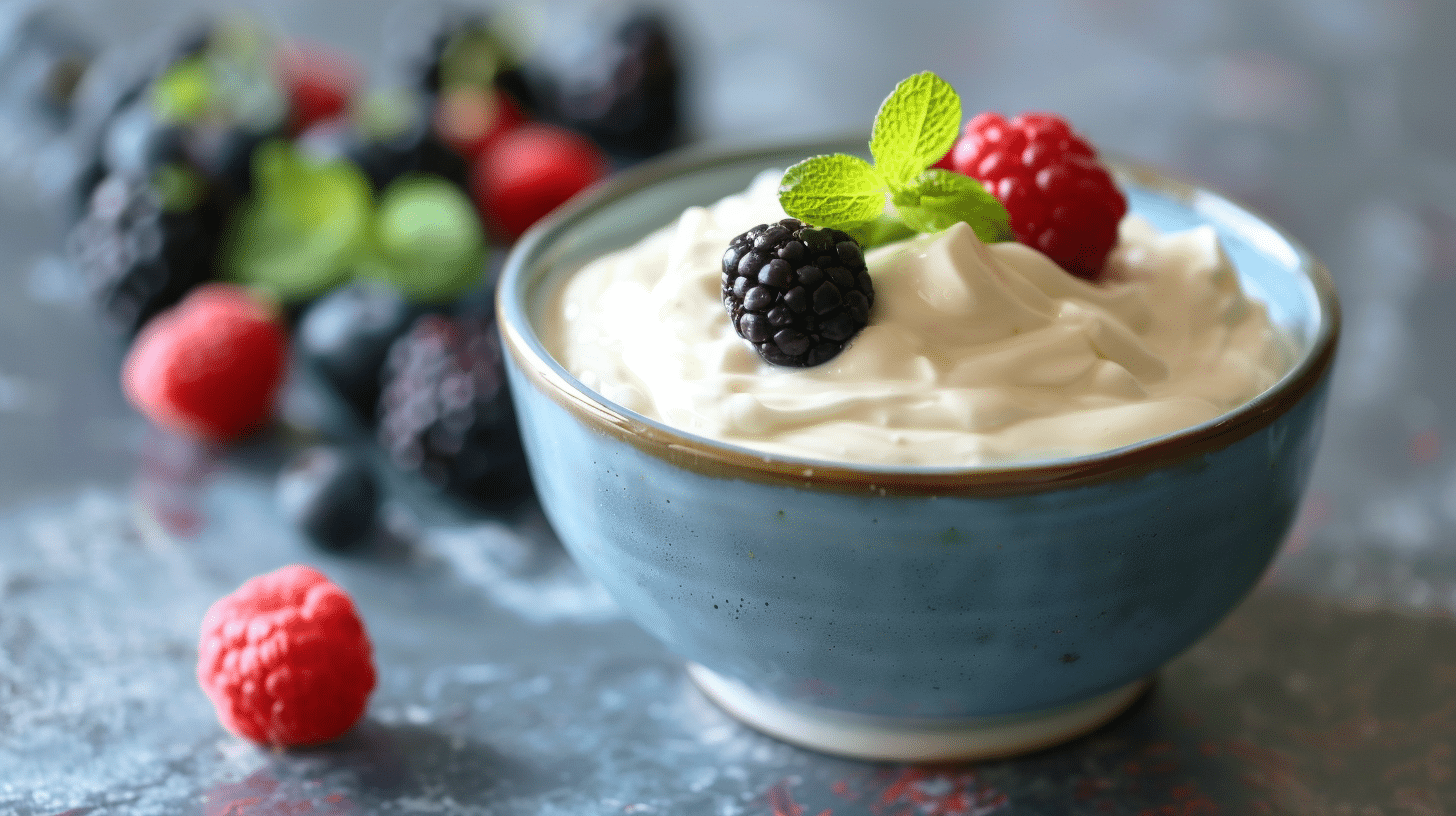Are you looking to shed those extra pounds while still enjoying delicious meals? The good news is that certain foods can do just that by boosting your metabolism and enhancing your body’s fat-burning capabilities. Understanding which foods can aid this process is key to effective weight management.
Incorporating fat-burning foods into your diet can offer numerous advantages, from improving overall health to making weight loss more sustainable. Various categories of foods contribute to this fat loss, including proteins, fruits, vegetables, and grains. By focusing on these healthy options, you can enjoy meals that satisfy your taste buds and support your weight loss goals.
Key Benefits of Fat-Burning Foods
Incorporating specific foods into your diet can enhance weight loss by boosting metabolism and promoting fat loss. Whole grains, for instance, speed up metabolism and increase calorie loss because they result in fewer calories retained during digestion.
Chia seeds are a great addition to your weight loss plan. Rich in protein and fiber, they help increase feelings of fullness and promote fat loss. Foods with a high thermic effect, like legumes and nuts, require more energy for digestion, which helps burn more calories.
Including nutrient-dense foods high in fiber, healthy fats, and protein can aid in appetite control by enhancing feelings of satiety. This can be particularly helpful for those looking to reduce overall food intake.
Choosing whole foods over processed ones is crucial. Whole foods generally lower calorie density and can support a healthy metabolism. By selecting fat-burning foods, you can improve your metabolic rate, control your appetite, and potentially reduce belly fat, all while enjoying a balanced diet.
Types of Fat-Burning Foods
When aiming for weight loss, certain fat-burning foods can be beneficial. These foods often require more energy for digestion, leading to more calories burned. Incorporating them into your diet can improve metabolism and reduce fat accumulation. Let’s explore some key types of fat-burning foods.

Fatty Fish
Fatty fish such as salmon, herring, sardines, and mackerel are excellent options. They are rich in omega-3 fatty acids, which can help reduce body fat and enhance metabolic health. Consuming two to three servings weekly can significantly reduce liver and abdominal fat. The high-quality protein in fatty fish promotes feelings of fullness, reducing hunger. Omega-3 fatty acids also have anti-inflammatory properties, which can help trim abdominal fat and contribute to a healthier diet without causing weight gain.
Lean Proteins
Lean proteins, including chicken, turkey, and lean beef, are crucial for muscle growth and repair. These proteins are rich in amino acids and have a high thermic effect, meaning they burn more calories during digestion. Studies suggest that eating chicken as part of a balanced diet can significantly reduce weight, mainly due to fat loss. Lean proteins help preserve muscle mass during calorie restriction, which is essential since lean mass burns more calories than fat. Opt for low-fat and low-calorie options like boneless, skinless chicken breasts to increase satiety.

Fruits
Fruits, especially citrus fruits like grapefruit, can aid in weight loss by reducing calorie intake and enhancing fullness. Pineapples contain bromelain, an enzyme aiding in fat digestion and appetite suppression. Apples’ high water and fiber content help you feel full longer. Raspberries, being low-calorie and high in fiber, effectively curb appetite and satisfy sugar cravings.
Vegetables
Non-starchy vegetables like leafy greens and cruciferous varieties can effectively reduce belly fat. Vegetables such as spinach, kale, broccoli, and cauliflower are low in calories but rich in essential nutrients and fiber. These help with overall health and fat loss. Incorporating low-GI vegetables like cauliflower into your diet may lead to more significant weight loss than starchier choices. Consuming a variety of vegetables supports nutrient intake without excessive calorie consumption.
Whole Grains
Whole grains, such as oats and quinoa, are high in fiber. This aids in weight loss, enhances digestion, and helps stabilize blood sugar levels. Research shows that whole grains can lead to more significant fat loss, particularly in the abdominal area, than refined grains. They boost metabolism and increase calorie loss as fewer calories are absorbed during digestion. Rich in complex carbohydrates and fiber, whole grains help maintain fullness, reducing the need for constant snacking.
When included in a balanced diet, these fat-burning foods can support a healthy weight loss plan. They enhance satiety, improve metabolic rates, and benefit overall health.
How to Incorporate Fat-Burning Foods into Your Diet
Introducing specific fat-burning foods into your diet can significantly aid in weight management. Foods that require more energy for digestion can increase your calorie burn. Foods rich in proteins, healthy fats, and fibers enhance satiety, making you feel fuller longer. Add anti-inflammatory choices like oily fish and berries to combat inflammation linked to weight gain. Another practical addition is coconut oil, which contains medium-chain triglycerides. These can boost your energy use, helping with weight loss.
Meal Planning Tips
1. Balance Nutrition: Aim for a healthy calorie deficit by including nutrient-dense foods high in fiber, healthy fats, and protein.
2. Variety and Preference: Ensure your meal plan consists of healthy foods that suit your taste, supporting long-term adherence.
3. Thermic Effect: Include foods like legumes and nuts, which require more digestion energy and may aid in weight loss.
4. Healthy Snacks: Incorporate nutritious snacks such as almonds or Greek yogurt to maintain energy and satiety.
Snack Ideas
When hunger strikes between meals, turn to snacks that won’t derail your weight loss efforts:
• Nuts: Almonds or pistachios offer healthy fats and proteins.
• Fruit and Cheese: Pair string cheese with an apple for a protein and fiber boost.
• Greek Yogurt: Rich in protein, this can keep hunger at bay.
• Banana with Peanut Butter: This combines carbohydrates with protein for lasting energy.
• Veggies with Hummus: Swap chips for carrots or celery with hummus as a nutritious, low-calorie option.
These tasty and satisfying options can help manage weight and promote a healthy lifestyle.
Additional Lifestyle Factors for Fat Burning
Fat burning, also known as fat oxidation, is vital for energy production in the body. Enhancing this process requires both dietary changes and consistent exercise. Eating specific foods can enhance fat-burning; understanding these can improve weight loss and management efforts.
Foods like green tea and chili peppers contain substances that boost thermogenesis or heat production, which can aid in burning fat. Capsaicin in chili peppers helps improve insulin levels and supports metabolism. Another beneficial ingredient is cinnamaldehyde, found in cinnamon, which balances blood sugar and curbs fat storage. Combining such foods in a balanced diet with fruits, vegetables, lean proteins, and healthy fats to maintain a healthy BMI is crucial for effective weight management.

Exercise and Activity Levels
Physical activity is essential for weight maintenance. Different forms of exercise target fat burning differently. Aerobic exercises like brisk walking, running, cycling, and swimming effectively reduce belly fat. Strength training with weights helps improve body composition and overall fat loss. Another effective method is High-Intensity Interval Training (HIIT), which diminishes waist size in overweight adults. Integrating various exercises with dietary changes is key for managing weight and enhancing fat-burning processes.
Hydration
Staying hydrated plays a critical role in weight loss. Drinking water can suppress appetite and give a temporary boost to metabolism. Well-hydrated individuals tend to perform better physically and mentally, making exercise more feasible. As a rule, consume half your body weight in ounces of water daily for adequate hydration. Starting the day with water or drinking before meals helps control appetite. Foods rich in water, like cucumbers, also aid in hydration and lower calorie intake.
Sleep Quality
Sleep is a significant factor influencing metabolism and weight control. Poor sleep is linked to higher obesity risks. Aim for 7–9 hours nightly for optimal health. Good sleep hygiene, including reducing noise and light, can improve quality. Insufficient sleep affects weight management and can compromise your health. Prioritize good sleep to support your weight loss efforts.
Including a balance of hydration, sleep, and exercise with fat-burning foods will optimize your weight management plan for better health outcomes.
How Specific Foods Can Burn Fat and Support Your Weight Loss Goals
Incorporating specific foods can burn fat and boost your metabolism, playing a crucial role in weight management. By adding fat-burning foods like fatty fish, lean proteins, and whole grains to your diet, you can support sustainable fat loss while maintaining overall health. For personalized guidance in creating a tailored weight loss plan, contact Medical Health Solutions today at (303) 951-8617 to schedule your consultation and start your journey toward a healthier lifestyle.
Fitness training at your service. I help patients with weight problems in their journey to shave off that extra pounds by providing quality health, wellness and fitness programs that yield results without them feeling deprived.






